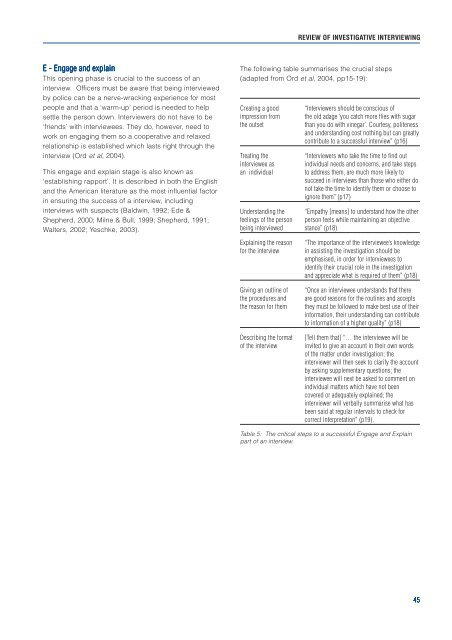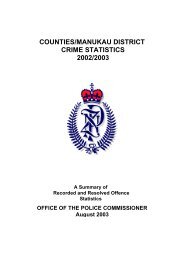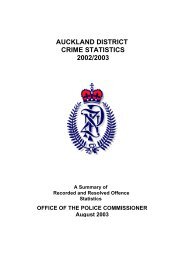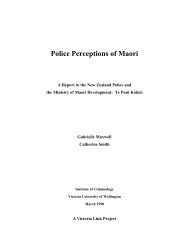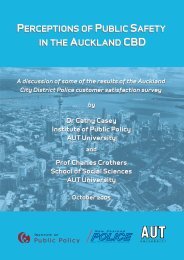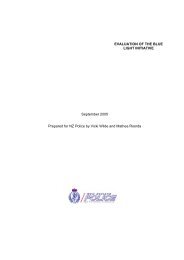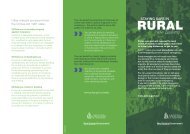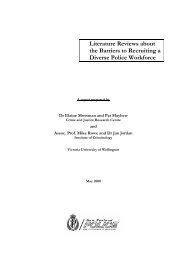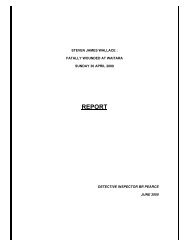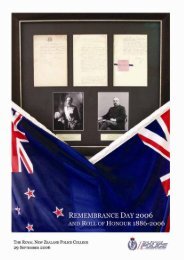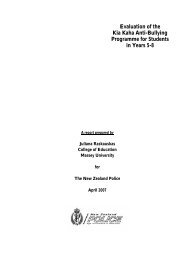Investigative interviewing: the literature - New Zealand Police
Investigative interviewing: the literature - New Zealand Police
Investigative interviewing: the literature - New Zealand Police
You also want an ePaper? Increase the reach of your titles
YUMPU automatically turns print PDFs into web optimized ePapers that Google loves.
REVIEW OF INVESTIGATIVE INTERVIEWING<br />
E - Engage and explain<br />
This opening phase is crucial to <strong>the</strong> success of an<br />
interview. Officers must be aware that being interviewed<br />
by police can be a nerve-wracking experience for most<br />
people and that a ‘warm-up’ period is needed to help<br />
settle <strong>the</strong> person down. Interviewers do not have to be<br />
‘friends’ with interviewees. They do, however, need to<br />
work on engaging <strong>the</strong>m so a cooperative and relaxed<br />
relationship is established which lasts right through <strong>the</strong><br />
interview (Ord et al, 2004).<br />
This engage and explain stage is also known as<br />
‘establishing rapport’. It is described in both <strong>the</strong> English<br />
and <strong>the</strong> American <strong>literature</strong> as <strong>the</strong> most influential factor<br />
in ensuring <strong>the</strong> success of a interview, including<br />
interviews with suspects (Baldwin, 1992; Ede &<br />
Shepherd, 2000; Milne & Bull, 1999; Shepherd, 1991;<br />
Walters, 2002; Yeschke, 2003).<br />
The following table summarises <strong>the</strong> crucial steps<br />
(adapted from Ord et al, 2004, pp15-19):<br />
Creating a good<br />
impression from<br />
<strong>the</strong> outset<br />
Treating <strong>the</strong><br />
interviewee as<br />
an individual<br />
Understanding <strong>the</strong><br />
feelings of <strong>the</strong> person<br />
being interviewed<br />
Explaining <strong>the</strong> reason<br />
for <strong>the</strong> interview<br />
“Interviewers should be conscious of<br />
<strong>the</strong> old adage ‘you catch more flies with sugar<br />
than you do with vinegar’. Courtesy, politeness<br />
and understanding cost nothing but can greatly<br />
contribute to a successful interview” (p16)<br />
“Interviewers who take <strong>the</strong> time to find out<br />
individual needs and concerns, and take steps<br />
to address <strong>the</strong>m, are much more likely to<br />
succeed in interviews than those who ei<strong>the</strong>r do<br />
not take <strong>the</strong> time to identify <strong>the</strong>m or choose to<br />
ignore <strong>the</strong>m” (p17)<br />
“Empathy [means] to understand how <strong>the</strong> o<strong>the</strong>r<br />
person feels while maintaining an objective<br />
stance” (p18)<br />
“The importance of <strong>the</strong> interviewee’s knowledge<br />
in assisting <strong>the</strong> investigation should be<br />
emphasised, in order for interviewees to<br />
identify <strong>the</strong>ir crucial role in <strong>the</strong> investigation<br />
and appreciate what is required of <strong>the</strong>m” (p18)<br />
Giving an outline of<br />
<strong>the</strong> procedures and<br />
<strong>the</strong> reason for <strong>the</strong>m<br />
Describing <strong>the</strong> format<br />
of <strong>the</strong> interview<br />
“Once an interviewee understands that <strong>the</strong>re<br />
are good reasons for <strong>the</strong> routines and accepts<br />
<strong>the</strong>y must be followed to make best use of <strong>the</strong>ir<br />
information, <strong>the</strong>ir understanding can contribute<br />
to information of a higher quality” (p18)<br />
[Tell <strong>the</strong>m that] “… <strong>the</strong> interviewee will be<br />
invited to give an account in <strong>the</strong>ir own words<br />
of <strong>the</strong> matter under investigation; <strong>the</strong><br />
interviewer will <strong>the</strong>n seek to clarify <strong>the</strong> account<br />
by asking supplementary questions; <strong>the</strong><br />
interviewee will next be asked to comment on<br />
individual matters which have not been<br />
covered or adequately explained; <strong>the</strong><br />
interviewer will verbally summarise what has<br />
been said at regular intervals to check for<br />
correct interpretation” (p19).<br />
Table 5: The critical steps to a successful Engage and Explain<br />
part of an interview.<br />
45


